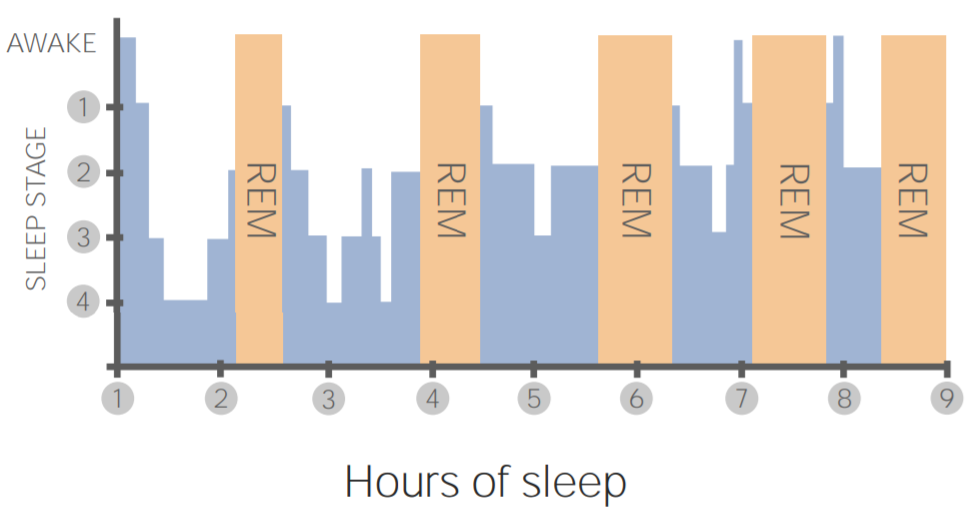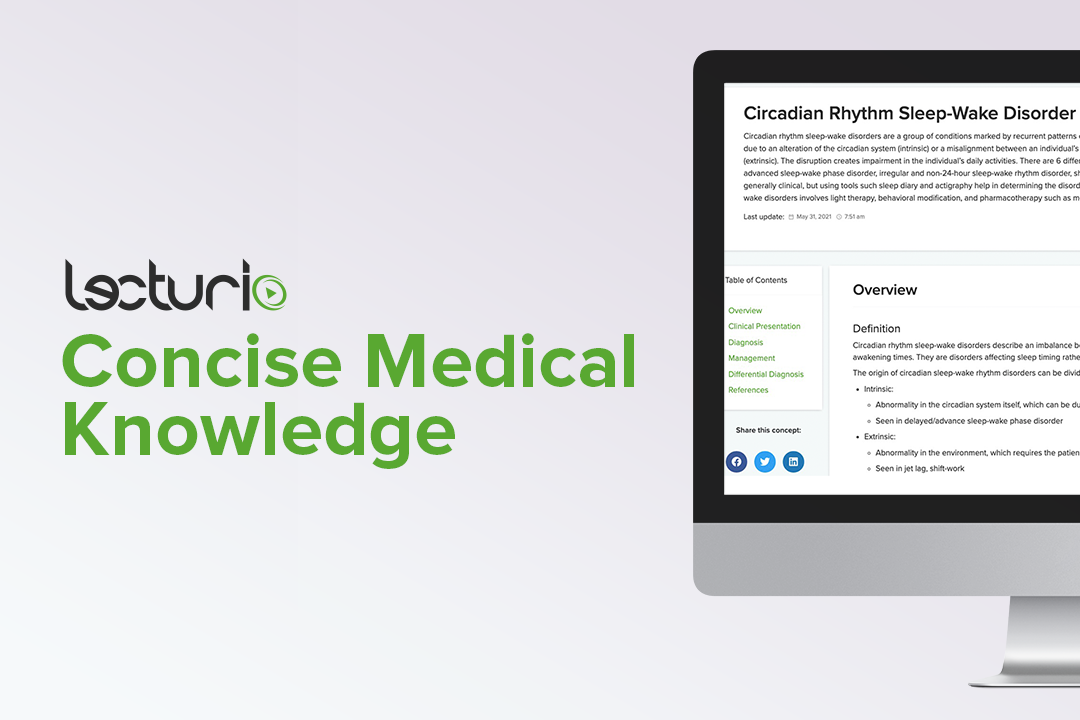Playlist
Show Playlist
Hide Playlist
Circadian Rhythm
-
Slides Sleep Disorders Introduction to Sleep.pdf
-
Download Lecture Overview
00:00 The second system I want you to think about is the circadian rhythm and melatonin which is one of the key regulators that puts us to sleep. So let's walk through this slide and understand what's happening in the brain. We're going to start down with starting your day. Light hits your eyes. 00:18 That information has travelled to the suprachiasmatic nucleus and this turns the brain on. As we go through our day, we reached maximum arousal, fast reaction times, we can limit caffeine intake, and ultimately reach the end of the day when melatonin release starts. Melatonin is one of the key regulators that puts the brain to sleep. And we see about an hour after that dramatic melatonin release, the brain and body becomes sleepy. We sleep through the night, we see that temperature reaches its lowest point during the night. We have both deep sleep early in the night and REM sleep later. And then as melatonin release stops, the brain is ready to wake up. And the circadian rhythm is one of the important automatic controls of wakefulness and sleep. When we think about melatonin, melatonin and cortisol are important in their interaction to put us to sleep and wake us up and you can see here the changes in brain and body melatonin and cortisol. When we wake up, melatonin is going down and cortisol is spiking to wake us up and get us active and moving in our day. Over the course of the day, cortisol levels decline and melatonin builds up right before sleep. And so in this way, these hormones help to control both the brain and the body's wakefulness and sleep and are critical regulators. In situations where there is dysfunction of melatonin or problems with cortisol function, we'll see abnormalities in circadian rhythm in both wakefulness and sleep. Stress can also change a number of these hormones and either disrupt sleep or change our ability to remain fully awake. When we think about sleep,
About the Lecture
The lecture Circadian Rhythm by Roy Strowd, MD is from the course Sleep Disorders.
Included Quiz Questions
What is the relationship between melatonin and cortisol secretion throughout our sleep–wake cycle?
- Inverse
- Direct
- Logarithmic
- Exponential
- None
What is the term that describes the sleep–wake cycle regulated by light and controlled by melatonin?
- Circadian rhythm
- Melatonin cycle
- Homeostasis
- Krebs cycle
- Sleep–wake cycle
Customer reviews
5,0 of 5 stars
| 5 Stars |
|
5 |
| 4 Stars |
|
0 |
| 3 Stars |
|
0 |
| 2 Stars |
|
0 |
| 1 Star |
|
0 |





